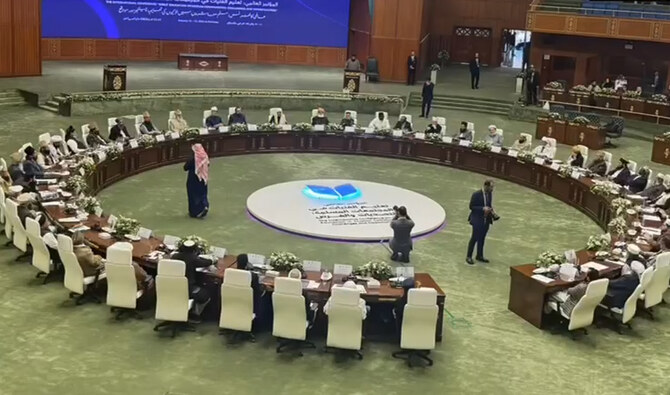Prime Minister Shehbaz Sharif emphasized on Saturday that girls’ education is a vital cause worth fighting for, investing in, and passionately advocating.
He was speaking at the opening of the two-day “International Conference on Girls’ Education in Muslim Communities: Challenges and Opportunities” held in Islamabad. The prime minister urged collective efforts to create scalable and sustainable solutions for advancing education for girls.
This global event has gathered experts, educators, and policymakers from various countries. Around 150 delegates from 47 nations are participating to address the challenges surrounding girls’ education in Muslim-majority regions. The conference aims to find practical solutions to the barriers that prevent girls from accessing education.
Nobel Peace Prize laureate Malala Yousafzai has also arrived in Islamabad to attend the conference as a special guest. It marks her first visit to Pakistan in over two years.
Education Crisis in Pakistan
Pakistan faces an alarming education crisis, with over 26 million children out of school. Most of these children live in rural areas, making the country one of the worst in global education statistics.
Last year, Prime Minister Shehbaz declared an “education emergency” and announced plans to increase the education budget from 1.7% of GDP to 4% within five years. He stressed the importance of investing in girls’ education, noting that millions of young women entering the job market in the next decade could transform families, nations, and even the global economy.
“We owe it to our mothers, sisters, and daughters to respect their rights and help fulfill their ambitions,” the prime minister said. He urged that no cultural or societal barriers should prevent women from achieving their dreams.
Shehbaz Sharif highlighted significant challenges faced by Pakistan and other Muslim nations in ensuring equal educational opportunities for girls. He warned that denying education to girls deprives them of their voice, choice, and future.
He also pointed out that women make up over half of Pakistan’s population, but the female literacy rate remains only 49%. Alarmingly, 22.8 million children aged 5 to 16 years are out of school, with a significant majority being girls.
Government Initiatives for Girls’ Education
The prime minister mentioned Daanish schools as a major initiative to tackle these disparities. These schools provide quality education to underprivileged children in rural and underdeveloped areas. This model is being expanded to remote regions to ensure an inclusive future.
He also spoke about the government’s flagship youth program. It focuses on quality education, job creation, scholarships, and vocational training for skills in demand.
Shehbaz Sharif reminded the audience that the pursuit of knowledge is a sacred duty in Islam for both men and women. He referenced the teachings of the Holy Prophet Hazrat Muhammad (Peace Be Upon Him) to emphasize the importance of education for all.
The federal government plans to present the Islamabad Declaration, signed at the conference, to the United Nations and the UN Security Council. This document represents a collective aspiration of the Muslim world to advance the cause of girls’ education.
The event also featured the signing of the International Partnership Agreement. This agreement symbolizes a global commitment to promoting education for girls and addressing educational inequalities.


